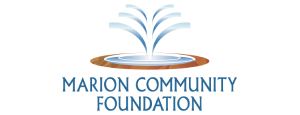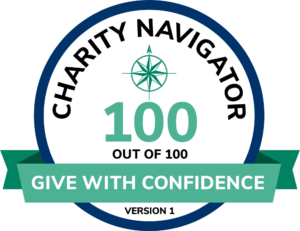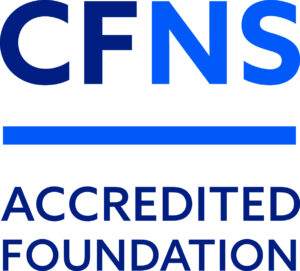2015 Community Grants Awarded
From recovery services to robotics, community revitalization, economic development, health equity and more, Marion Community Foundation seeks to move Marion forward by supporting 36 innovative programs via the 2015 Community Grants Program.
According to Foundation president and CEO, Dean Jacob, more than $710,000 in grants have been awarded in this year’s grants cycle to 30 area nonprofit organizations.
“We are pleased to be able to support local programs that will have far-reaching, positive community impact,” said Jacob. “None of these worthwhile programs could be supported by Marion Community Foundation without the original gifts from our donors. People like Bob and Dorothy Wopat, Merle Hamilton, Charles and Mary Roberts, Paul and Susan Ludwig, and Jim Conway had a vision of a better Marion when they created unrestricted endowment funds at Marion Community Foundation. These funds are now benefitting the community in numerous ways.”
Other support for the Community Grants Program comes from the generosity of fund creators Dr. Henry Heinzmann, Francis and Thelma Wise, Kenny Martin, John and Kathy O’Shea, Vera McDanel, Jerry Grubaugh, Marion Noon Lions Club, and the anonymous donor of the “C Fund.” Funds honoring the lives of Helen Cunningham, Dave and Anne Brown, and James and Margaret Coulson provide further funding to Marion Community Foundation’s grants program.
“We can’t thank our donors enough,” said Jacob. “Even after awarding nearly three quarters of a million dollars, of which we are very proud, additional funds are always welcome. The need definitely exists.”
The 2015 applications included 79 requests — totaling more than $2.9 million — from 59 area nonprofit organizations.
Among the organizations receiving grants from Marion Community Foundation is the Arnita Pittman Community Recovery Center, which opened in 2012 as a substance abuse treatment center and rapidly increased services as demand became apparent. Marion Community Foundation is providing a grant of $75,000 in support of the Pittman Center’s Buckeye Residential Recovery House, a sober living facility on North Main Street for men, age 18 and up, recovering from alcohol and drug addiction.
Peer-run recovery homes, such as Buckeye House, provide an alcohol- and drug-free environment to aid residents in addiction recovery and provide a transition time to adjust to sobriety and the responsibilities of everyday life, according to founder Arnita Pittman, a licensed independent chemical dependency counselor and clinical supervisor. Its methods have received the endorsement of the Crawford-Marion Board of Alcohol, Drug Addiction and Mental Health Services (ADAMH) and are proven to decrease substance use and rates of incarceration, while increasing rates of employment and income.
One of the Pittman Center’s pressing needs – transportation for residents to/from job sites – is being addressed by the purchase of a van with the grant from Marion Community Foundation. Because transportation is also a major barrier to the treatment phase of recovery, Marion Community Foundation awarded $13,000 to the Marion Area Counseling Center (MACC) for short-term transportation assistance to their clients starting and continuing treatment. MACC and the Pittman Center are coordinating their transportation issues.
“Marion Community Foundation seeks to improve the community by tackling pressing issues,” said Susie Brown, Foundation board member and chair of the grants committee. “We look to support a variety of programs that utilize innovation and collaborative to move Marion forward.”
Another grant awarded with this philosophy in mind is $20,000 for Marion Technical College’s (MTC) Pathway to Success program. According to MTC board member Bob Haas, Pathways to Success is a new program for the College designed to help Marion students simultaneously earn an associate degree and a high school diploma. The Pathways program includes both students and their parents, he said, because studies show that a large percentage of economically disadvantaged students never enroll in college because their parents lack an understanding about college. Through the Pathways program, MTC will partner with Marion area schools and provide direct mentoring of students, beginning in grade 9.
“Pathways will create a sustainable initiative that will both help students and fill employment gaps for local businesses,” said Haas.
Several more grants were awarded to address a variety of long-range, quality of life issues, including those to Tri-Rivers’ RAMTEC, Marion Matters, Habitat for Humanity, and Marion Public Health.
Marion Community Foundation awarded $30,000 to RAMTEC to support expansion of its welding and metal fabrication training center.
“A project such as this very concretely addresses economic development and job growth,” said Jacob. “This is a new avenue for Marion Community Foundation, one we have not specifically made grants for in the past, but now see as part of our expanding role as a community innovator.”
Marion Matters has been awarded two grants — $39,885 for their Getting Ahead classes and Financial Literacy program and $40,000 for staff development.
“Getting Ahead in a Just Gettin’ by World” classes offered by Marion Matters for those in poverty who wish to achieve self-sufficiency, is a two-month, twice weekly class, plus a 6-week Transitions class, which focuses on resume writing, continuing education and goal setting. A 12-week financial literacy class is also offered, as is a mentoring program intended to help graduates maneuver through middle class systems.
“Marion Matters views themselves as a community movement, rather than just a project or program,” said Brown. “Marion Community Foundation agrees.”
The $17,550 award to Marion’s Habitat for Humanity addresses community revitalization, another new area for the Foundation’s funding. Their “A Brush with Kindness” home preservation program is a community outreach project of exterior home improvements for low-median income homeowners slated to begin in June 2016. The program will provide siding/paint, roof repair/replacement, porch repair, replacement windows and doors, wheelchair ramps, and sidewalks, and will target neighborhoods where Habitat has already built homes — beginning on Olney Avenue and Mound Street.
“A Brush with Kindness is a way for Habitat for Humanity become an agent for change in neighborhood revitalization in Marion,” said executive director Lynn Zucker. “This program helps low-income homeowners reclaim their homes with pride and dignity.”
Likewise, Marion Public Health’s “A Community Approach to Health Equity” collaborative project has been awarded a $2,000 grant, in large part, because of their innovative approach to a growing social service concern.
Health commissioner Thomas Quade defines “health equity” as “a state free of cultural, socio-economic, and environmental barriers to the achievement of full health potential for all who call Marion home.”
Marion Public Health seeks to bring together members of the business community, academic institutions, faith-based, non-profit, and governmental agencies and representatives of populations they serve, for a two-day learning/training opportunity led by health equity and policy experts. The goal of the event is to demonstrate the value and teach the process of developing and evaluating policy at all levels with a perspective on how policy impacts the overall health of the population.
Other major grants awarded with the expectation of long-term benefits to the Marion community include:
- $20,000 to Let’s Read 20, in continued support of this program dedicated to promoting early childhood literacy and transforming Marion into a community that values reading and education as one of the core skills for future long-term academic, personal, financial and collective community success;
- $40,000 to the Boys & Girls Club of Marion County for general operations and their Healthy Habits Starts Here project, which provides more than 700 Marion children with tools and knowledge to make better lifestyle choices and live healthier, more productive lives;
- $20,000 in support of Marion Area Counseling Center, Inc.’s new empirically-tested program which teaches resiliency skills using a social-emotional learning curriculum to elementary-age students attending the Boys and Girls Club after-school program, as well as $15,000 in continued support of MACC’s Signs of Suicide Program in the county middle and high schools;
- $60,000 to Center Street Community Health Center for Phase 3 of their Behavioral Health expansion project; and,
- $40,000 to the Salvation Army of Marion County in support of their Ohio Food Security and Crisis Intervention & Family Re-Housing programs, which provide local households with assistance in securing needed nutritional food, family housing stability and crisis intervention.
Program coordinator Julie Prettyman noted that 25 additional grants were funded, including three leadership gifts to forthcoming campaigns which will be announced directly by the recipient organizations.
Acknowledging the time commitment required to review and discern among the large number of applications received, Jacob thanked the grants committee members – Susie Brown, Jeremy Dunn, Kelly Garrett, Dr. Kim Stark, Dan Kiger, Dr. Henry Heinzmann, Judge Deborah Alspach, and Nicolle Wampler – as well as program manager Julie Prettyman. The grants committee provided recommendations to Marion Community Foundation’s Board of Directors who approved the grants at their September meeting.
“We only wish we could do more,” said Nicole Workman, board chairperson for Marion Community Foundation.



